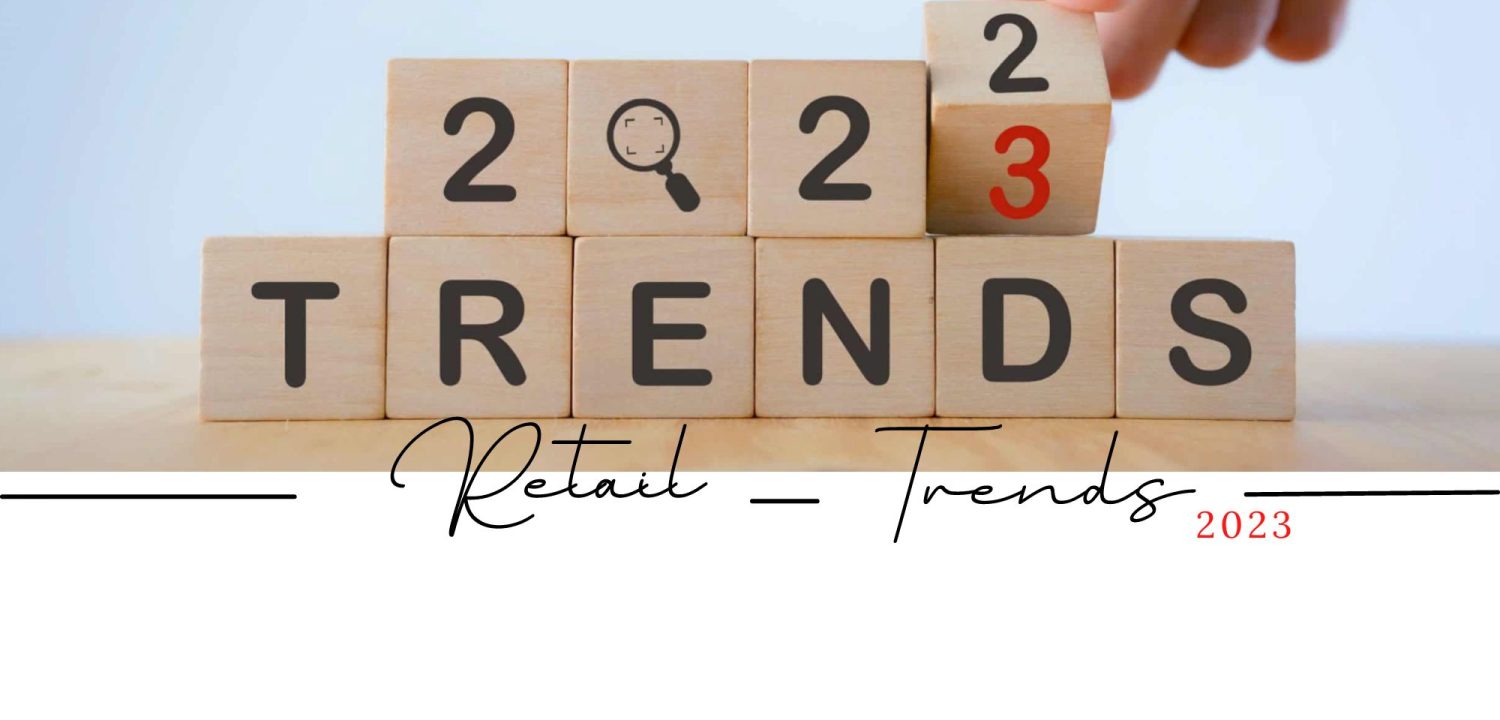Retail trends 2023
Retail trends are shaped by shifts in consumer behavior and technology advancements. Some recent trends that have emerged in the retail industry include an increased focus on sustainability, personalized experiences for customers, the use of augmented reality and virtual reality, and the integration of artificial intelligence and machine learning into retail operations. It will be interesting to see how these and other trends continue to develop in the coming years.
Retail Industry Trends
The retail industry is constantly evolving, with new trends emerging each year. Here are some current trends in the retail industry:
- E-commerce: Online shopping has become increasingly popular in recent years, and the COVID-19 pandemic has accelerated this trend. Retailers are investing in their e-commerce platforms to provide customers with a seamless online shopping experience.
- Personalization: Consumers are looking for personalized experiences, and retailers are responding by offering personalized recommendations and customized products.
- Sustainability: As consumers become more environmentally conscious, retailers are making efforts to reduce their environmental footprint. This includes using sustainable materials, reducing waste, and implementing eco-friendly practices.
- Technology: Technology is transforming the retail industry, with the use of AI, AR, and VR to enhance the customer experience. For example, AR and VR can be used to allow customers to try on clothing virtually, while AI can be used to provide personalized recommendations.
- Social commerce: Social media platforms are increasingly being used as a way for retailers to reach customers and sell products directly. Social commerce allows customers to make purchases within the social media platform, without having to navigate to a retailer’s website.
- Convenience: Consumers are looking for convenient shopping experiences, with options such as buy online, pick up in-store (BOPIS) and same-day delivery becoming more popular. Retailers are also experimenting with new store formats, such as smaller footprint stores, to provide more convenient options for customers.
- Health and wellness: The COVID-19 pandemic has increased awareness around health and wellness, and retailers are responding by offering products that support a healthy lifestyle. This includes products such as vitamins, supplements, and fitness equipment.
- D2C (direct-to-consumer): More brands are choosing to sell directly to consumers, bypassing traditional retail channels. This allows brands to have more control over the customer experience and to gather valuable customer data.
These are just a few of the current trends in the retail industry, and it’s important for retailers to stay on top of these trends in order to stay competitive in the market.
Retail Technology
Retail technology refers to the use of technology in the retail industry to enhance the shopping experience, streamline operations, and improve business performance. It encompasses a wide range of tools and solutions, including point-of-sale systems, inventory management software, e-commerce platforms, customer relationship management systems, and more.
The retail industry has always been at the forefront of technological innovation, and in recent years, advancements in digital technology have transformed the way retailers operate. Here are some of the top trends in retail technology:
- Omnichannel retailing: Retailers are increasingly using omnichannel strategies to create a seamless shopping experience across multiple channels, including brick-and-mortar stores, online marketplaces, and social media platforms.
- Mobile commerce: With the growing use of smartphones and tablets, mobile commerce has become a significant force in the retail industry. Retailers are optimizing their websites and apps for mobile devices to make it easier for customers to shop on the go.
- Artificial intelligence: AI-powered solutions are becoming more prevalent in the retail industry, with retailers using machine learning algorithms to analyze customer data and make personalized product recommendations.
- Augmented reality: Augmented reality (AR) technology is being used by retailers to provide customers with an immersive shopping experience. AR allows customers to visualize products in their homes or in-store before making a purchase.
- Robotics: Robotics is being used to automate certain aspects of retail operations, such as inventory management and order fulfillment. Robots are also being used to enhance the in-store experience, with retailers deploying robots to greet customers and answer their questions.
- Data analytics: Retailers are using data analytics to gain insights into customer behavior and preferences, allowing them to make data-driven decisions and personalize the shopping experience.
Overall, the use of technology in the retail industry is expected to continue to grow, with retailers using innovative solutions to stay competitive and meet the evolving needs of customers.
Retail Technology and Sustainability
Retail technology and sustainability are two key concepts that are increasingly intertwined in today’s retail landscape. As businesses strive to become more environmentally responsible, they are leveraging technology to help them achieve their sustainability goals. Here are some ways that retail technology is being used to promote sustainability:
- Renewable Energy: Retailers are turning to renewable energy sources, such as solar power, to reduce their carbon footprint. They are also investing in energy-efficient lighting and HVAC systems to reduce energy consumption in their stores.
- Digitalization: Digitalization of retail processes, including inventory management and supply chain management, helps to reduce paper usage and waste, and improves efficiency.
- Smart Packaging: Retailers are adopting smart packaging technology to help reduce waste and increase sustainability. For example, some packaging solutions use biodegradable or recyclable materials, and others use sensors to monitor product freshness and reduce food waste.
- Recycling Programs: Retailers are creating recycling programs to help customers dispose of unwanted products in an environmentally responsible way. Some retailers are even partnering with recycling companies to create closed-loop recycling systems that turn old products into new ones.
- Sustainable Products: Retailers are also focusing on offering sustainable products, such as clothing made from recycled materials or products that are ethically sourced.
Overall, retail technology is helping retailers to become more sustainable by reducing waste, energy consumption, and carbon emissions. As consumers become more environmentally conscious, sustainability will continue to be a key factor in the success of retailers.




